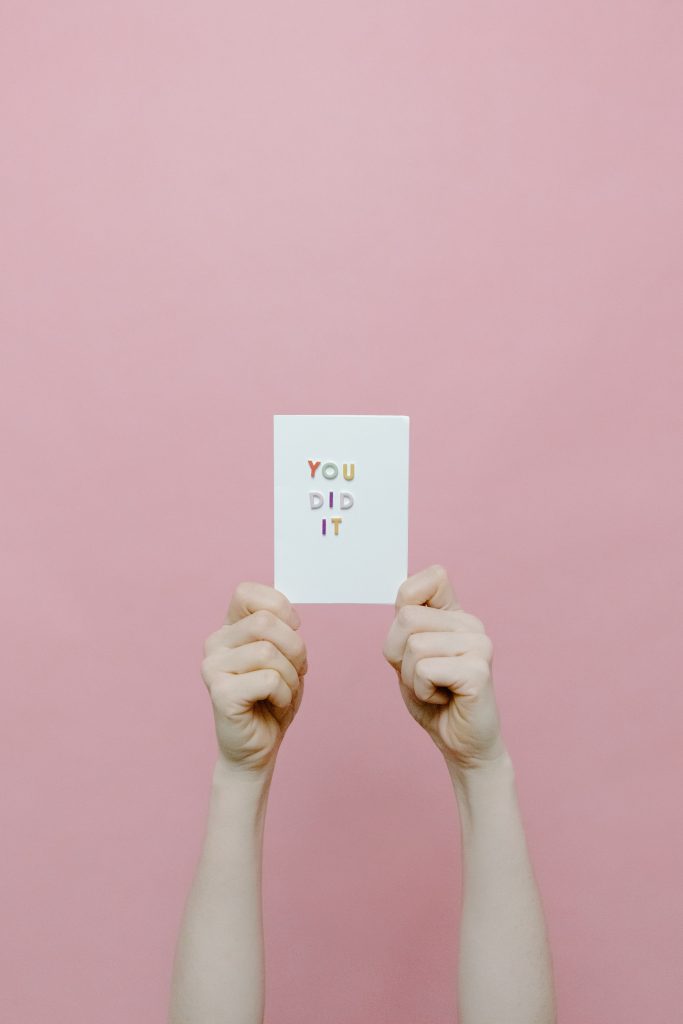A seasonal blog from the Bristol Wellbeing College’s resident blogger, Chrissy, who this month celebrates her own personal stress-busting win involving a snowflake and a toothpick….
Those among you with even the vaguest understanding of the passage of time may have noticed an interruption in our regularly scheduled blog posts last month.
Last month’s blog was intended to be about stress – specifically Stress Awareness Week, which rans from the 2-5 November in the UK.
Ironically, I had to miss the month because I was overly stressed, due to several huge life changes all happening at the same time.
Here’s what I learned.
What is stress?
Stress isn’t clearly definable, depending on a variety of factors as to how it is experienced – and it isn’t always a bad thing.
The human body is purpose-built for stress, meaning that small doses of stress are actually beneficial, helping you to accomplish tasks and alerting you to danger.
But our bodies are definitely not designed for long-term stress, which can have serious physical, cognitive and behavioural effects over time.
In the US, the Center for Disease Control and Prevention estimates that stress contributes to between 75% and 90% of all doctor visits, and there were 68.8 million stress related GP visits in the UK in 2019.
Our bodies can even begin to develop a sort of neurochemical dependence on cortisol – the ‘stress hormone’.
Eek, am I right? Actually, there is a powerful form of treatment that you can use any time to counteract the effects of stress – success.
The power of winning
Within positive psychology, there is significant emphasis placed on the benefits of positive experiences – more specifically, noticing and appreciating enjoyable moments.
Through savouring these experiences, people are able to build resilience, deepen social and emotional connections and, most importantly, boost self-worth.
There is science behind it, I promise.
Achievement activates the reward centre of our brains, which is where we keep all the happy chemicals.
On accomplishing something, your brain releases a burst of dopamine, making you feel happy and energised, and rebalancing the dopamine loss that comes with cortisol release.
What does success mean to you?
So I bet you’re wondering how you can get a steady stream of dopamine going when you’re just a normal person living a normal life? You can’t do a big achievement every day, surely? You’re not Mo Farah.
Well that’s where you’re wrong (hi Mo!), because it turns out achievement is whatever you decide it is.
It’s all subjective – for Mo Farah, 10,000m in 26 minutes is no big deal but I bet he can’t paint a perfect snowflake on his pinkie nail using a toothpick and I literally did that last week.
The problem, according to educator Mehrnaz Bassiri, is how our expectations are developing alongside our advancing society.
Speaking in a 2018 TED Talk, she places a high value on smaller wins, saying:
We’ve started to measure our progress on an oversized scale. By changing our perspective and appreciating human-size, human-scale achievements, we can move toward our goals,
“Small wins have a transformational power. Once a small win has been accomplished, forces are set in motion to favour another small win and another small win until the combination of these small wins lead to larger and greater accomplishments.
Put simply, instead of waiting for the big wins that we are societally programmed to (new job, getting married etc), decide on a goal which speaks to you (mine is a cabin in the woods full of small dogs) and decide on the incremental steps you need to take to get there.
Time to talk small
I’m talking small. Day by day. I aim to accomplish three things each day in my quest for my Woodland Dog Cabin™ and they include stuff like painting my nails and cleaning my bathroom because it all adds up to feeling mentally healthy enough to tackle the bigger stuff.
However – don’t forget that it’s not a one-off win, it’s a routine. The key term is progress. Incremental progress, but progress nonetheless.
You are working towards something rather than stagnating where you feel comfortable, because your brain is much cleverer than that and will start holding out on you, dopamine-wise.
The loyalty card effect
Do you have any idea how much you achieved today? If you really thought about it, I reckon you could put down at least three things that were a bit special, but that you didn’t make a big deal out of.
Now, if you’re going to be doing it anyway, you might as well get credit (or, points) for it – like a Tesco Clubcard (other supermarkets are available).
That’s why I’m challenging you to take out a loyalty card in your own mind for this month.
I specifically chose December for this because it has the shortest day, thus adding a little action-movie-time-pressure for you, and can get you off to a flying start ahead of everyone else doing new year resolutions.
That’s a +1 already and you haven’t even finished reading this yet.
Note your wins throughout the day, and celebrate them.
- Cleared your email inbox? Win!
- Emptied the recycling? Win!
- Put a USB right way round in the slot first time? Probably witchcraft, to be honest.
Then let us know how you get on so we can celebrate with you, because the only thing better than winning is everyone knowing about it.
Merry Christmas, Happy Holidays and we look forward to seeing you in the New Year.
Chrissy xxx

